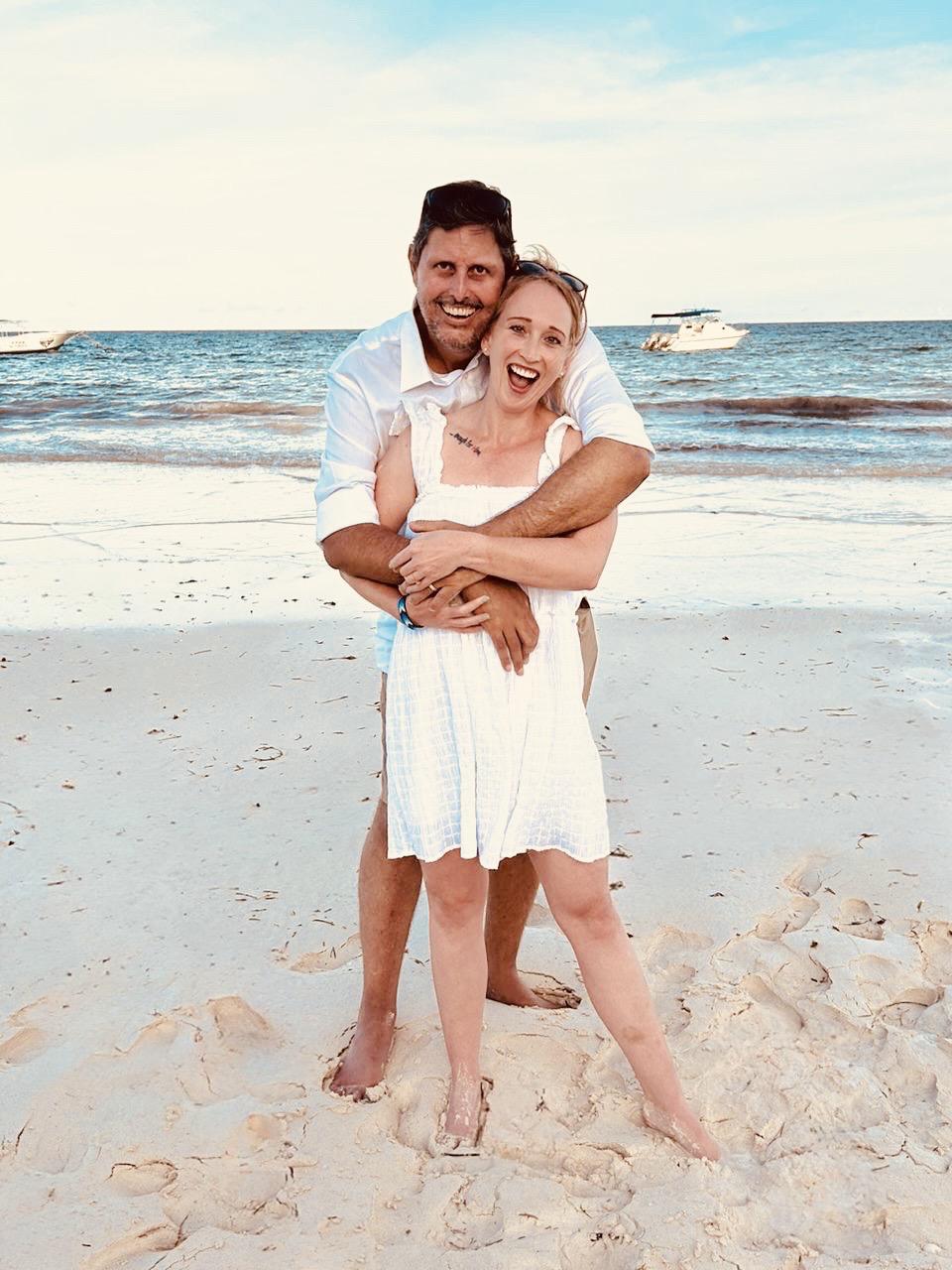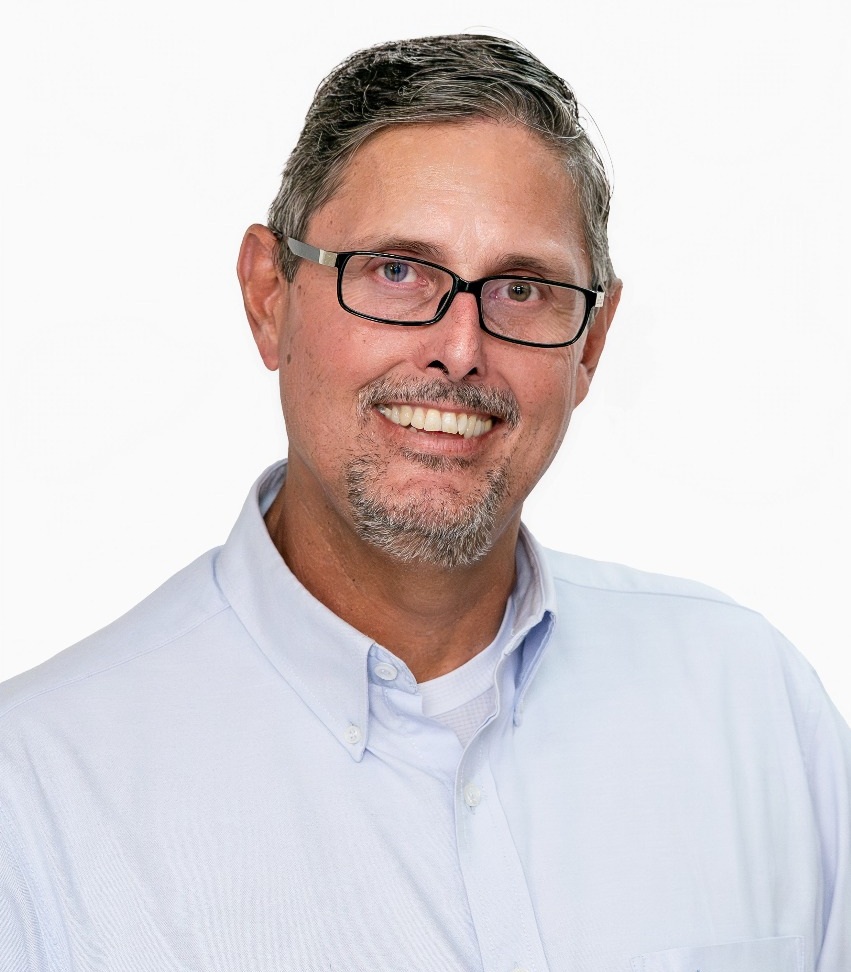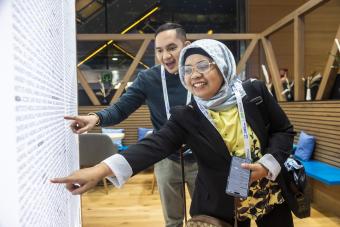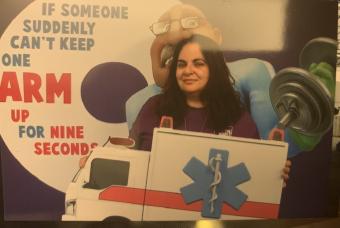On a Saturday morning in April 2008, George Scola was carrying one end of a couch when he suddenly felt dizzy. He let go of his end and leaned up against a wall to recover, then dropped to his haunches. He kicked out with his left foot, then attempted his right. His right foot didn’t budge, nor could his right arm support him. Shifting his weight to his left arm, he eased himself onto the ground. After these few seconds, George’s next life began.
April was the best time of the year to be in Cape Town because the wind finally stopped blowing and it was still too early for rain. It was a good time to be George, a 37-year-old business owner on the cusp of a lucrative partnership in the banking sector, a married man who had just invested in a coffee shop for his wife. They’d been looking forward to moving into a new apartment.
George was a smoker, his work was stressful, and completing a mini-triathlon two months earlier had made him realize he could probably do with shaking off a few kilos. But it still didn’t make sense that on this Saturday morning he was in the back of an ambulance hurtling towards an entirely unpredictable future.
A new perspective
On another Saturday morning, now well into the Cape Town winter, George and his wife were on an outing, a two-hour respite from the rehabilitation facility where he had been for six weeks. An exceptionally tall man who’d captained the basketball team at one of the top schools in Johannesburg, he’d been accustomed to having a bird’s eye view of the world, he says. But what he now saw from his wheelchair was a society that didn’t know how to deal with disability. Strangers either averted their eyes or regarded him with pity. After an hour George had had enough.
Two weeks later, George was sailing on his bum up the stairs to their second-floor apartment. Twenty-eight steps up, 28 steps down.
Two years later, he set off on 2,500 km walk, from Mussina, located on South Africa’s northern border with Zimbabwe, to Cape Point on the extreme southwestern tip of the African continent. The expedition took a little over six months to complete. He was still struggling with a weakened right side and finding workarounds for a speech deficit. There had been no miracle.
George had simply changed his mind.

Losing and finding support
The year George had his stroke was also the year when the collapse of the housing market bubble in the US lead to a credit freeze, bank failures and a global recession. It hit at the heart of George’s business and found him with his defences down. He’d come a long way since the time an occupational therapist asked him what was one plus one and he cried because he didn’t know the answer, but when he collapsed into tears in the middle of a board meeting, it was a sign to walk away.
Disabled and with his business in ruins, George had one more thing to lose and he did. He didn’t fight it because he had no fight in him, he says. There was no one to reassure his wife, or him for that matter, that her drooling, mumbling, slurring husband had the potential to recover or that the pressure on their marriage might ease.
George moved to the seaside suburb of Hout Bay and began to frequent a coffee shop where George the stroke survivor was the only George the other regulars knew. “It became my reintergration back into society,” he recalls. “Nobody had known me pre-stroke, so I could be who I was, whether I was accepted or not. It was a huge part of my recovery.”
Having found a “support group” at a neighbourhood café, George reached out to the only formal support group he could find, and learnt that the post-stroke priorities of survivors in their thirties were very different from those in their sixties and seventies. Discovering a dearth of support for younger survivors, George did what entrepreneurs do when they stumble onto an opportunity. He founded the Stroke Survivors Foundation with another young survivor and single mom. Aiming to raise awareness and funds, he asked himself what the last thing was society expected of a disabled person.
Then he set off on a very, very long walk.
A global view
By June 2013, George had been back in Johannesburg for over a year, and was living with his mother and sister whose support allowed him to continue working on the Foundation. Once again, his life was about to change. The Heart and Stroke Foundation nominated him to a working group of seven stroke survivors and carers constituted by the World Stroke Organization (WSO) to write the Global Stroke Bill of Rights (BOR). Two years later when he attended its launch at the World Stroke Congress in Istanbul, George traveled with a plus one. He and the future Mrs Scola had locked eyes over a carpel tunnel diagnosis at a medical practice where she was a nurse, and she has been there for him ever since.
In 2016, George was elected to the WSO board, and at the end of his four-year term, inducted as a Fellow of the WSO. International recognition for his stroke survivor advocacy, however well-deserved, didn’t exactly blow his socks off. He may be disabled but George is no walk-over, and he has sharp criticism for any intervention he sees as underserving the survivor community.
“Surviving stroke is the easy part,” he says. “You either do, or you don’t, and while you’re in hospital you are looked after and receive all the care you need. But the day you’re discharged, it changes. That’s when our lives as stroke survivors begin.”

Between leaving hospital and going home
Living largely online during the Covid lockdown, George made the acquaintance of a Chinese American stroke survivor who had been the youngest chief information officer in the banking sector and was no longer able to work. Together, they developed the Post Discharge Stroke Support platform that subsequently evolved into Strokefocus, a mobile app designed to help survivors and carers navigate the unknown and come to terms with the unimaginable.
“For stroke survivors it is a tool, so they don’t feel abandoned or alone. It gives them instant access to other survivors, so they can compare notes, whether they’re in a small Karoo town, or in the middle of New York City.
“For family and carers, it is a virtual support group where they can connect with others with the same lived experience, access appropriate education, and find answers and respite from it all.”
In George’s ideal world, family members find support groups even while the patient is being treated in hospital, and access education and community that help ease the transition between hospital care and home care.
He says, “It’s my passion, to build a bridge over that gap between leaving hospital and going home.”
Adapt, improvise, overcome
With “adapt, improvise, overcome” as his motto, George can teach you a lot about finding your way around obstacles. He can show you where to dig so you can keep believing anything is possible even as a task as simple as taking a shower saps every ounce of your energy.
As a stroke survivor you are always finding solutions for doing things you used to do with ease, he says – and it is here the key lies to overcoming society’s empathy problem with disability.
The Blue Glove Initiative, which he founded in 2016, is a social empathy campaign promoting disability awareness through immersive experiences. What George wants you to do is wear a blue glove on your dominant hand, and then not use that hand to tie your shoelaces, button your shirt, blowdry your hair, wash dishes, cut your steak, or do any of the things for which people with a disability have to improvise solutions every day.
He has huge respect for anyone who is disabled and achieves something, George says. “Taking on the challenges of life, made more complicated by physical or cognitive deficits, and overcoming that? That shows strength of character,” he says.
As does emerging from a catastrophe, reeling from loss, and redirecting your life towards a goal to contribute to the world.

